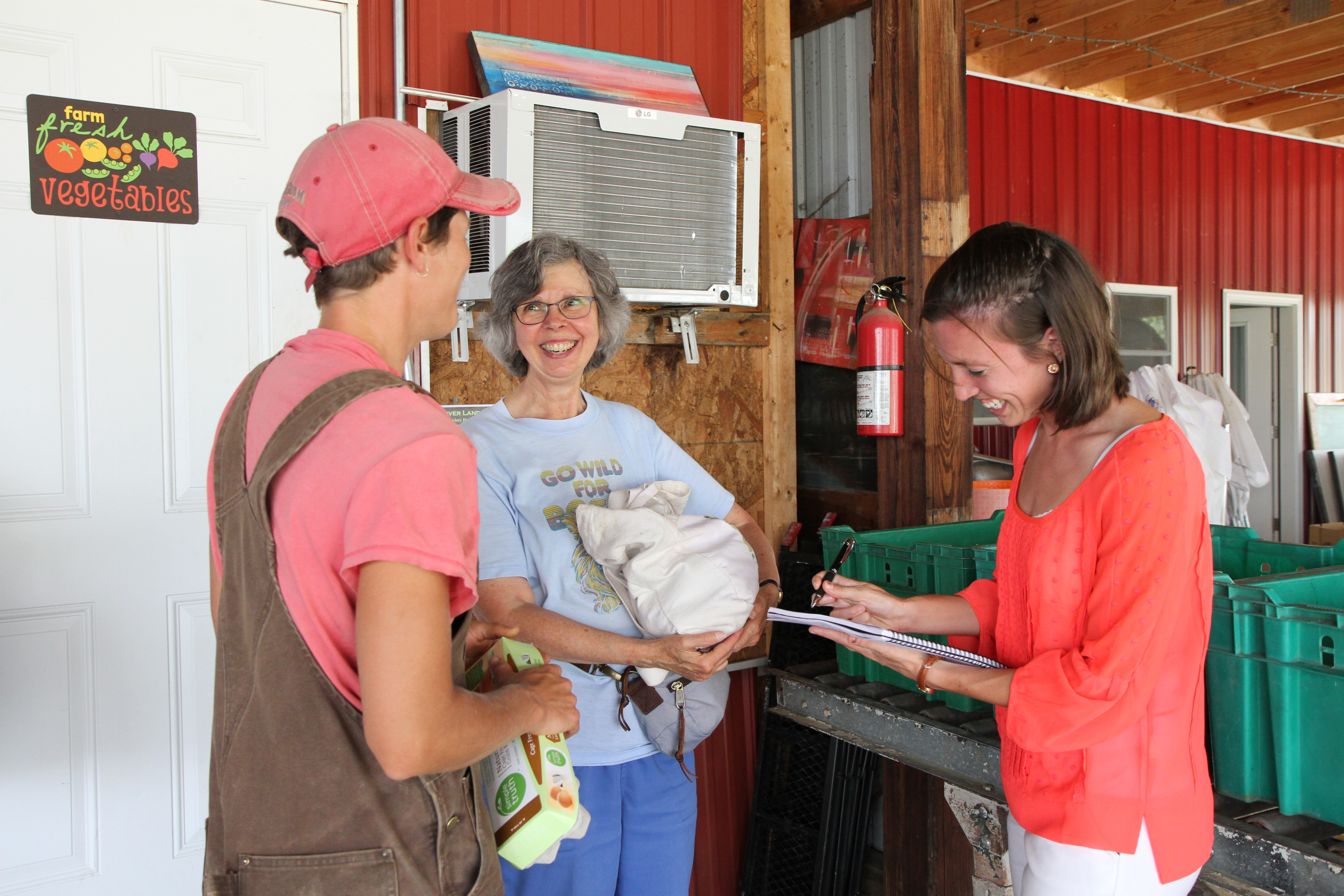Summer undergraduate research: Fralin fellow examines health impacts of Community Supported Agriculture

Consuming vegetables and meat grown on local farms is the hip thing to do these days, but is it also healthy?
Hayley Billingsley of Monterey, Virginia, a senior majoring in human nutrition, foods, and exercise in the College of Agriculture and Life Sciences, is spending her summer investigating this question as part of the Fralin Life Science Institute Summer Undergraduate Research Fellowship program.
Working with mentor Megan O’Rourke, an assistant professor of horticulture in the same college, Billingsley recruited 20 people who invest in Community Supported Agriculture through area farms to participate in her study.
From April to November, these people pick up a bundle of food once a week at various drop locations throughout town, including the Virginia Tech campus, Vintage Cellar, Eats Natural Foods, and Annie Kay’s Main Street market. The fee for the food is usually paid at the beginning of the growing season, but varies with each farm.
What’s in the bundle also varies, depending on the time of year and crop success. Many farms are currently producing kale, spinach, carrots, beets, yellow summer squash, tomatoes, onions, and more.
Billingsley collected a stream of baseline data from her respondents, including height, weight, body mass index, demographics, and wellness information. She will complete one 24-hour dietary recall per month this summer, in which respondents dictate what they ate the previous day.
Next, Billingsley plugs the results into Nutritionist Pro, a software platform that computes nutritional levels in diets, in order to compare those results with the general American public through the National Health and Nutrition Examination Survey.
Based on dietary recalls in June, “I’m finding that the respondents’ diet composition is more plant-based,” Billingsley said.
“They are consuming less saturated fat and added sugar and far less processed food, which is ideal. Meanwhile, they are consuming more whole grains and a lot of green, leafy vegetables, which are packed with nutritious vitamins, minerals, and fiber.”
While the results are just a snapshot due to the short duration of the study, Billingsley’s research will contribute to the larger research project of O’Rourke, who studies linkages between food systems and human and environmental health.
“Community Supported Agriculture has only existed for about 20 years and is sort of like a healthy weekly meal plan. If it can help people eat more nutritiously, or maybe even lose weight, we want people to know,” O’Rourke said.
During the summer of 2014, approximately 31 students are participating in Fralin Life Science Institute’s Summer Undergraduate Research Fellowship program. Students receive funding to pursue full-time independent research projects under the guidance of a faculty mentor.
Project results will be presented at the Virginia Tech Summer Undergraduate Research Symposium held from 8 a.m. to 5 p.m. Thursday, July 31 at the Graduate Life Center.




